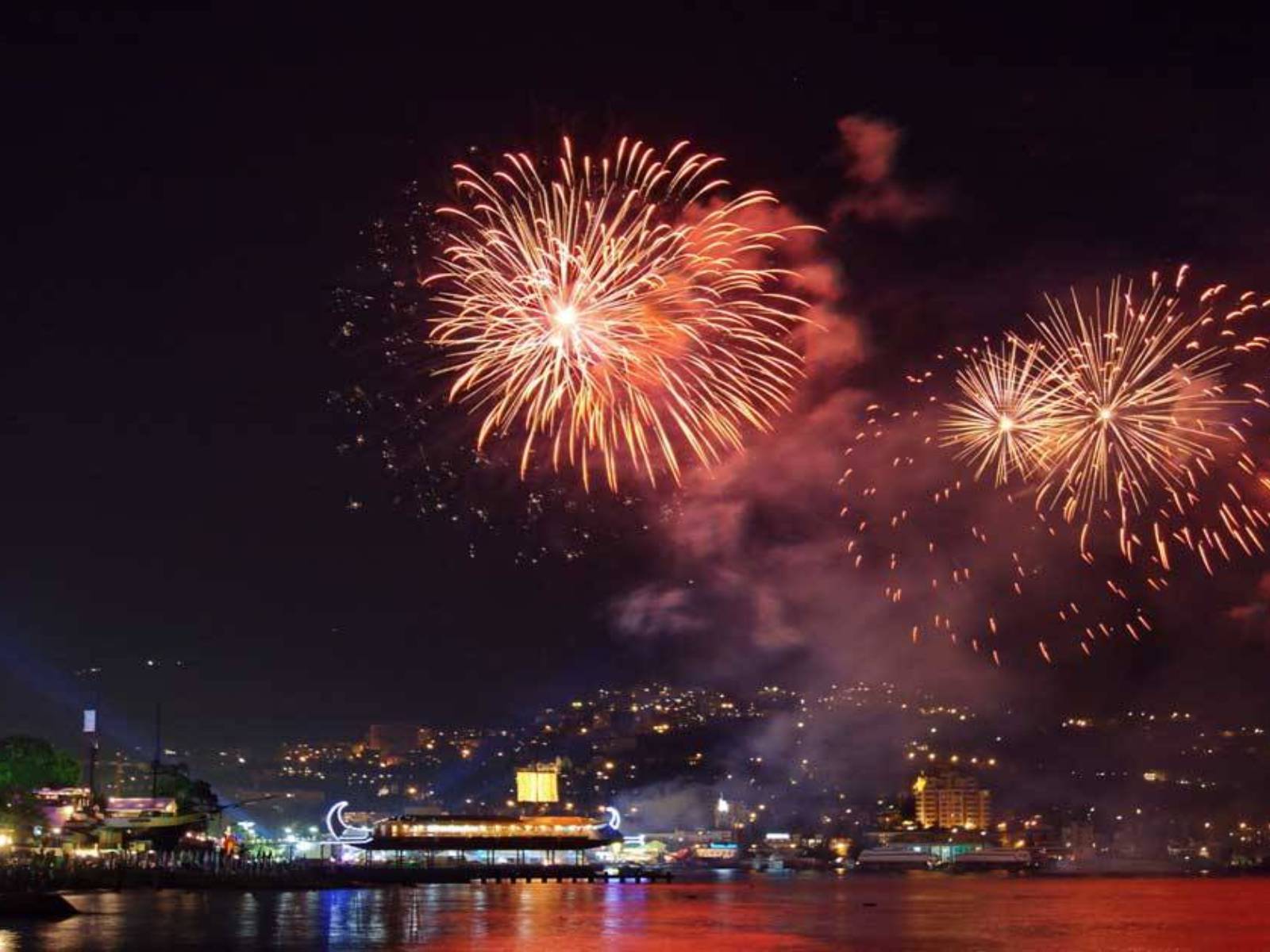- Головна
- Готові шкільні презентації
- Презентація на тему «Yalta»
Презентація на тему «Yalta»
275
Слайд #1
Yalta-
a world heritage natural
and cultural site
a world heritage natural
and cultural site
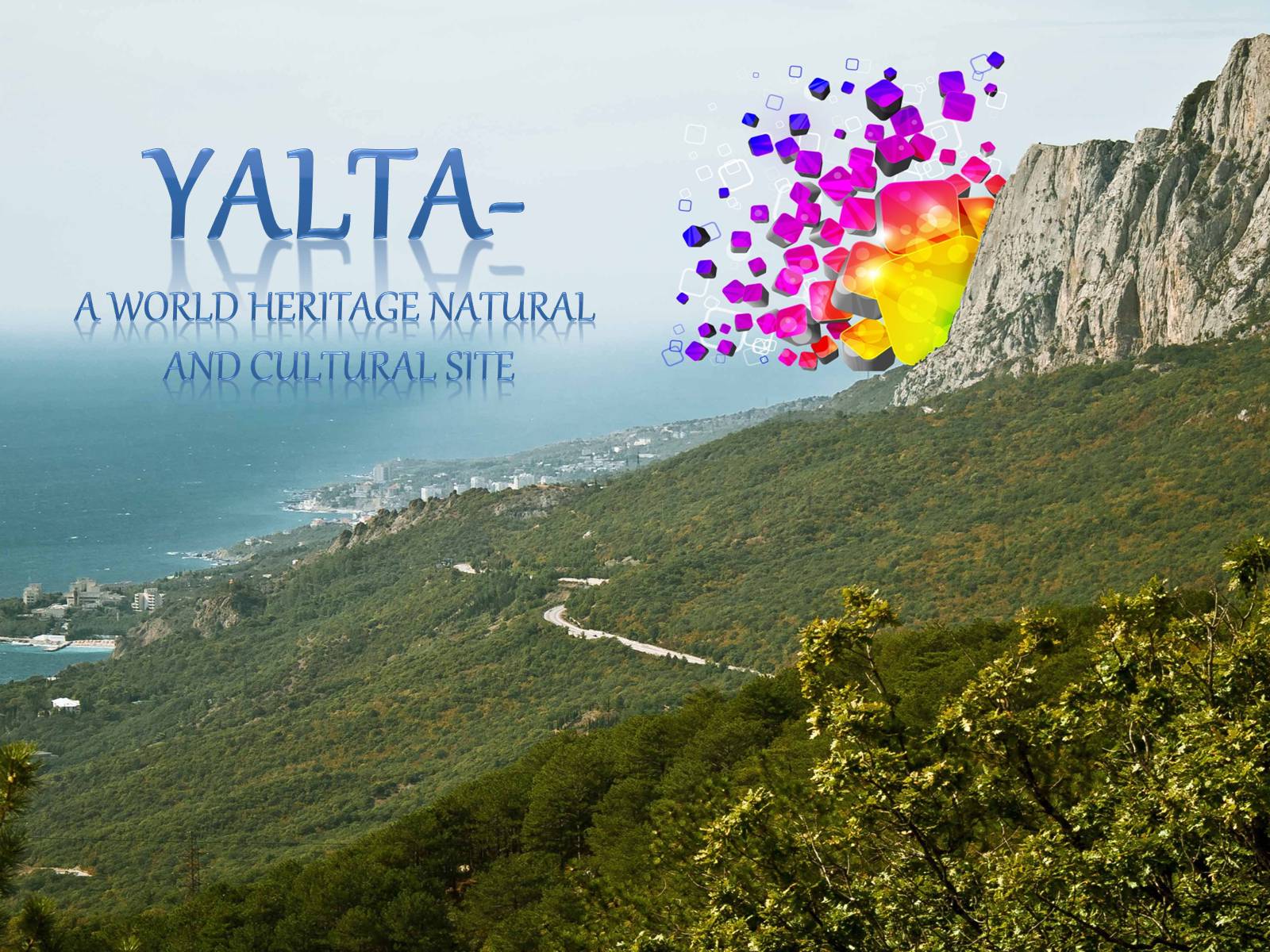
Слайд #2
Yalta is a resort city in Crimea, southern Ukraine, on the north coast of the Black Sea. The city is located on the site of an ancient Greek colony, said to have been founded by Greek sailors who were looking for a safe shore on which to land. It is situated on a deep bay facing south towards the Black Sea, surrounded by wooded mountains. It has a warm humid subtropical climate with many vineyards and orchards in the vicinity.
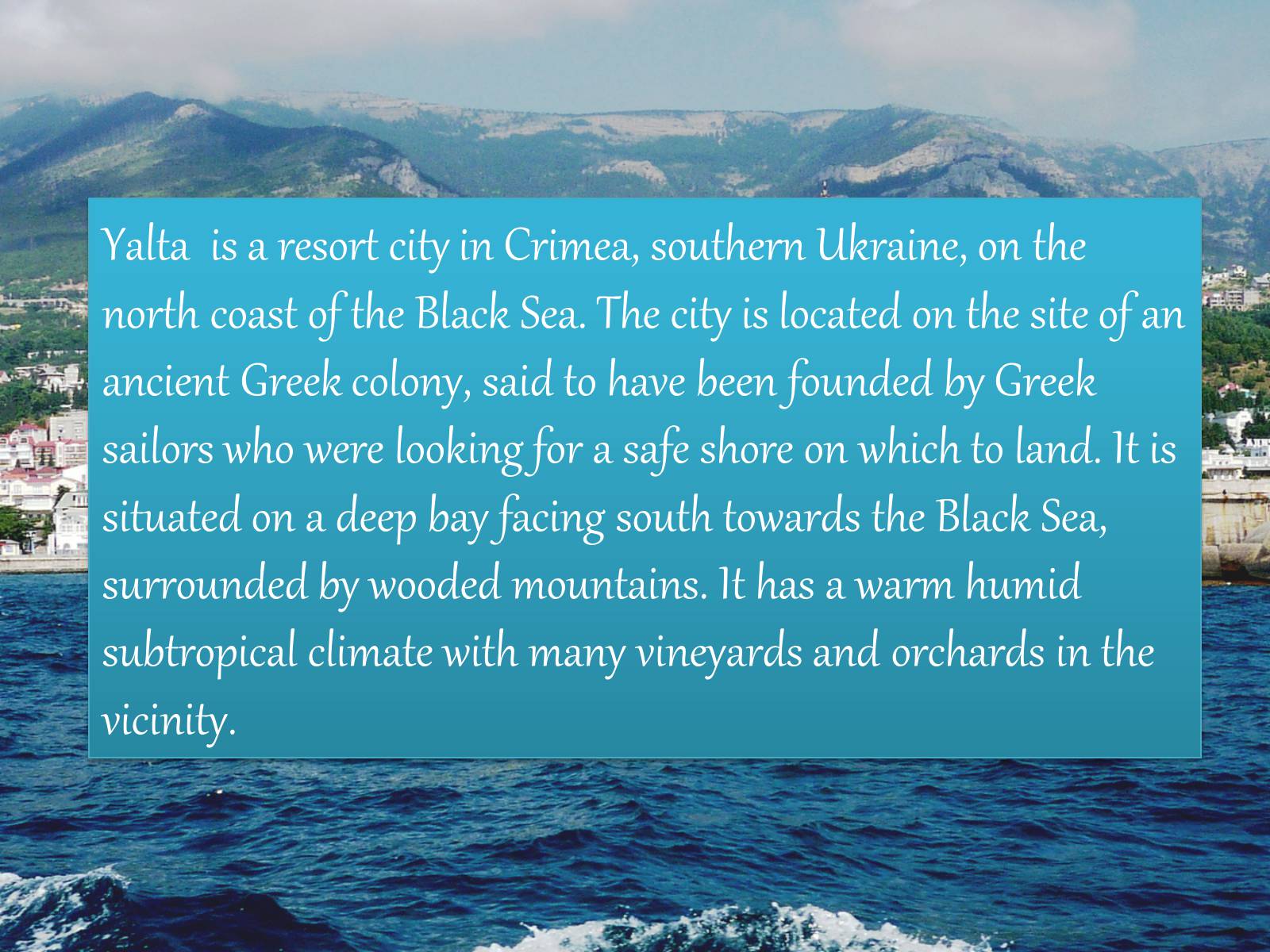
Слайд #3
In the 19th century, the town became a fashionable resort for the Russian aristocracy and gentry. Leo Tolstoy spent summers there and Anton Chekhov in 1898 bought a house (the White Dacha) here, where he lived till 1902; Yalta is the setting for Chekhov's short story, "The Lady with the Dog", and such prominent plays as The Three Sisters were written in Yalta. The town was also closely associated with royalty. In 1889 Tsar Alexander III finished construction of Massandra Palace a short distance to the north of Yalta and Nicholas II built the Livadia Palace south-west of the town in 1911.
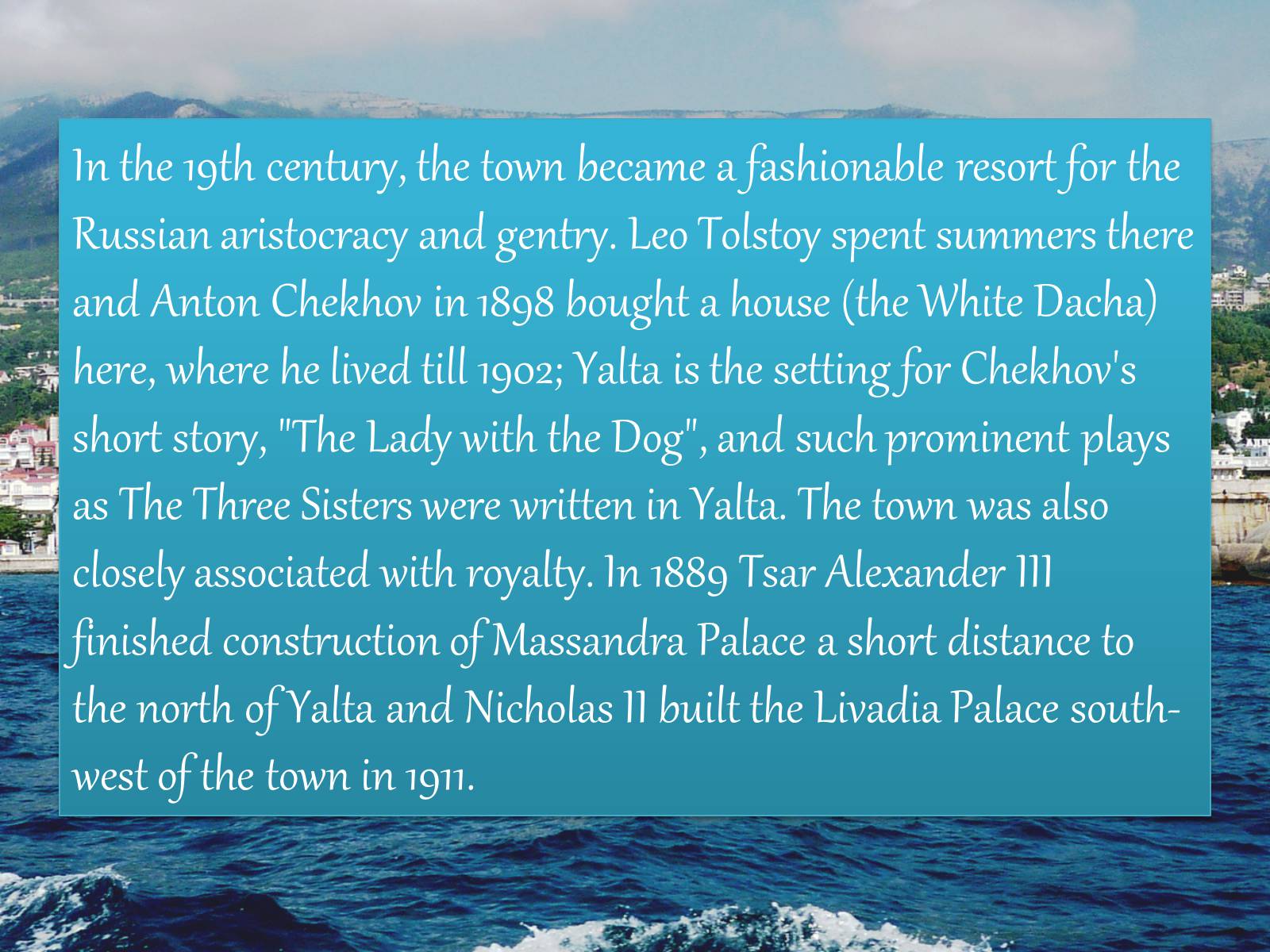
Слайд #4
The Massandra Palace
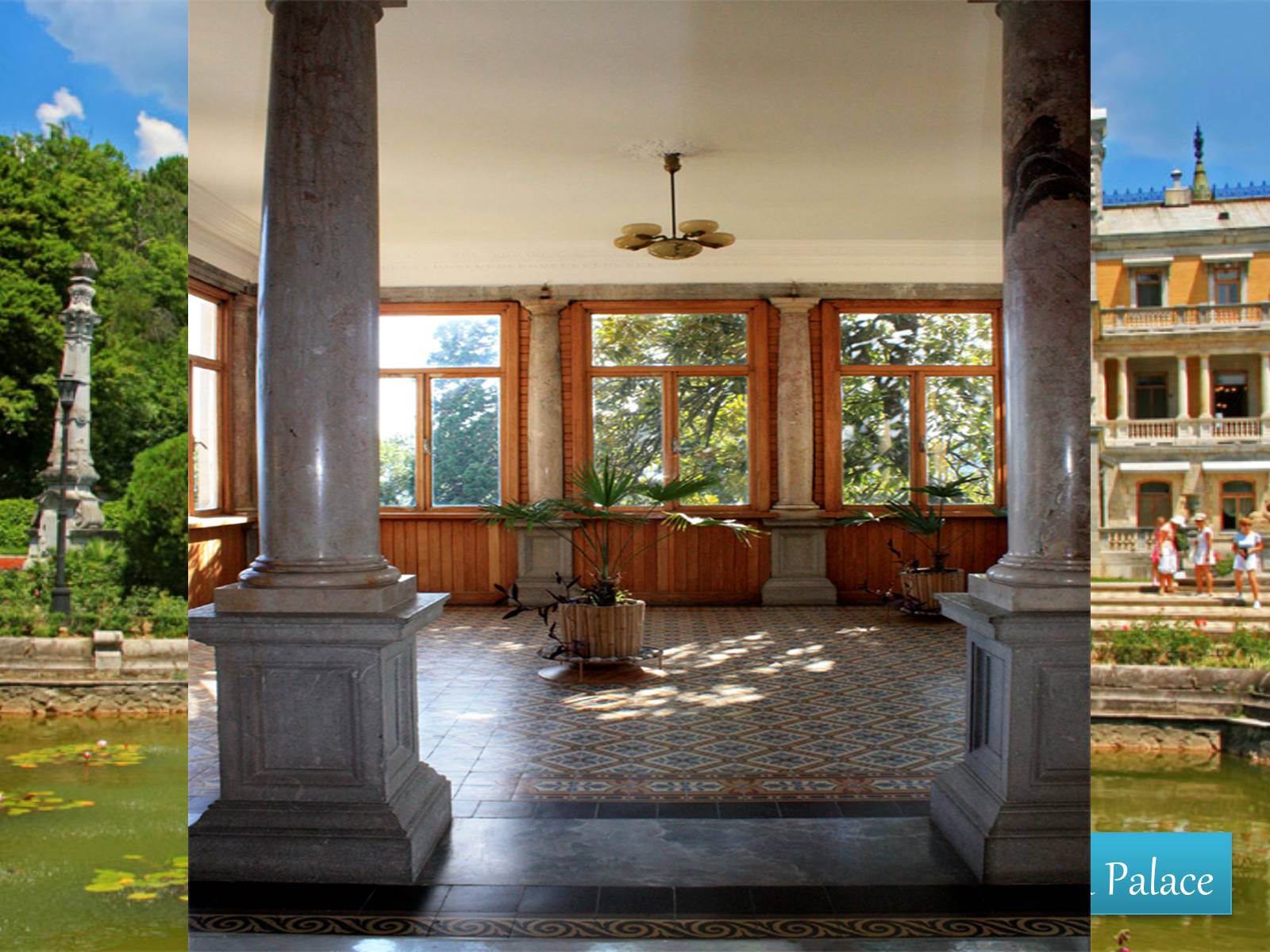
Слайд #5
the Livadia Palace
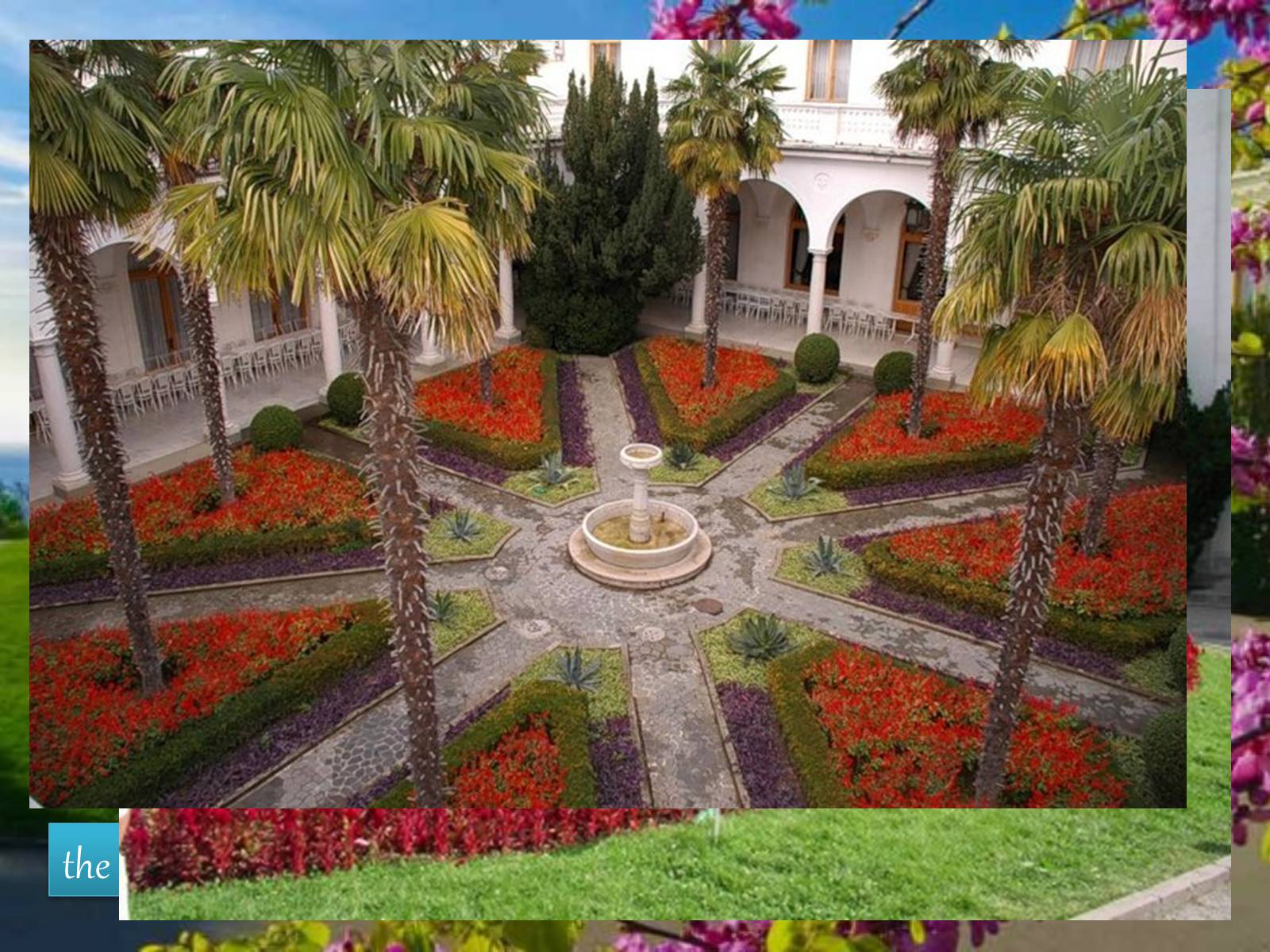
Слайд #6
During the 20th century Yalta was the principal holiday resort of the Soviet Union. In 1920, Vladimir Lenin issued a decree "On the Use of Crimea for the Medical Treatment of the Working People" which endorsed the region's transformation from a fairly exclusive resort area into a recreation facility for tired proletarians. Numerous workers' sanatoria were constructed in and around Yalta. There were, in fact, few other places that Soviet citizens could come for a seaside holiday, as foreign travel was forbidden to all but a handful. The Soviet elite also came to Yalta; the Soviet dictator Joseph Stalin used the Massandra Palace as his summer residence.
Yalta was occupied by the German Army from 9 November 1941 to 16 April 1944.
The town came to worldwide attention in 1945 when the Yalta Conference between the "Big Three" powers - the Soviet Union, the United States and the United Kingdom - was held at the Livadia Palace.
Yalta was occupied by the German Army from 9 November 1941 to 16 April 1944.
The town came to worldwide attention in 1945 when the Yalta Conference between the "Big Three" powers - the Soviet Union, the United States and the United Kingdom - was held at the Livadia Palace.
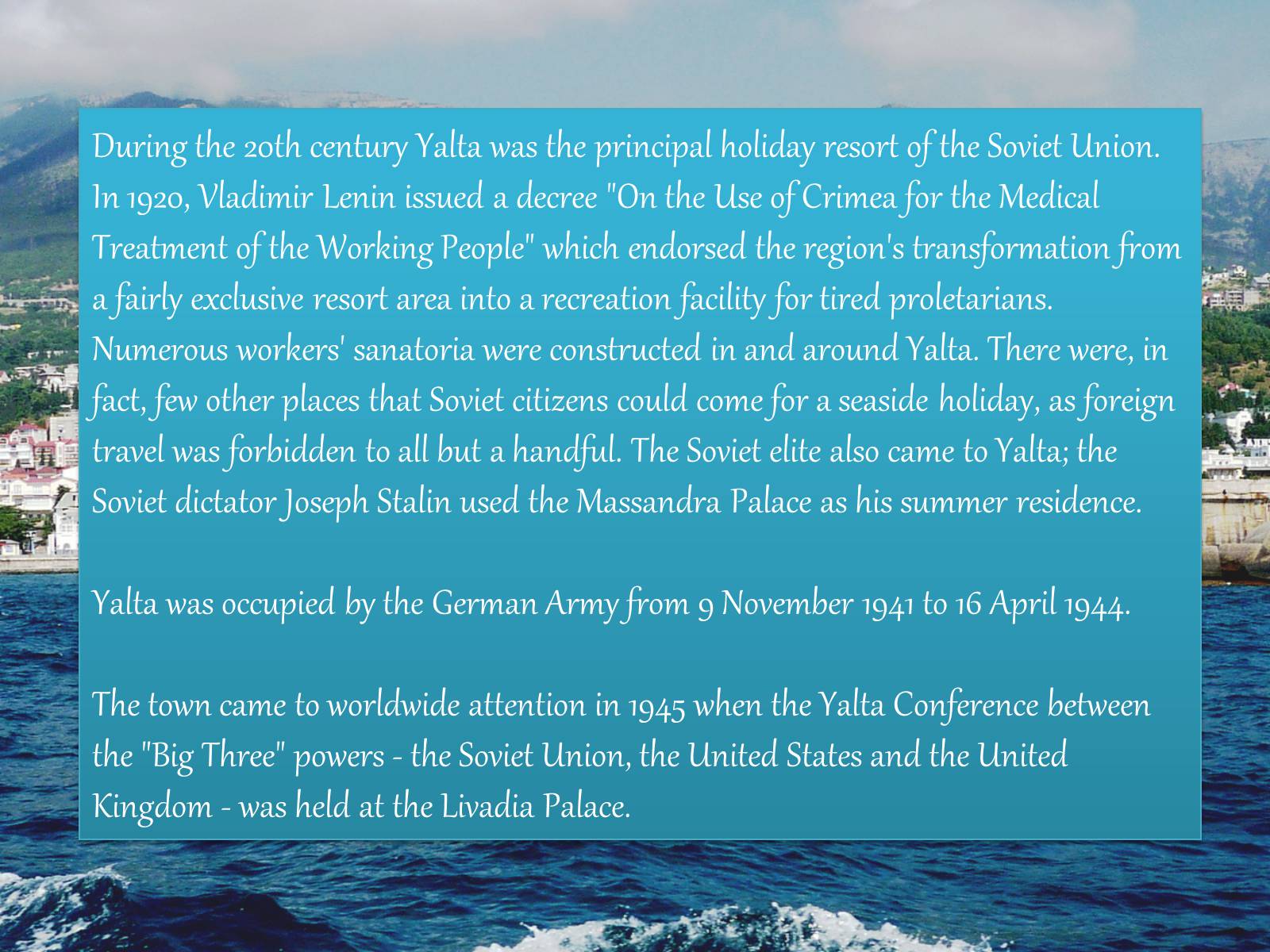
Слайд #7
Yalta 1980
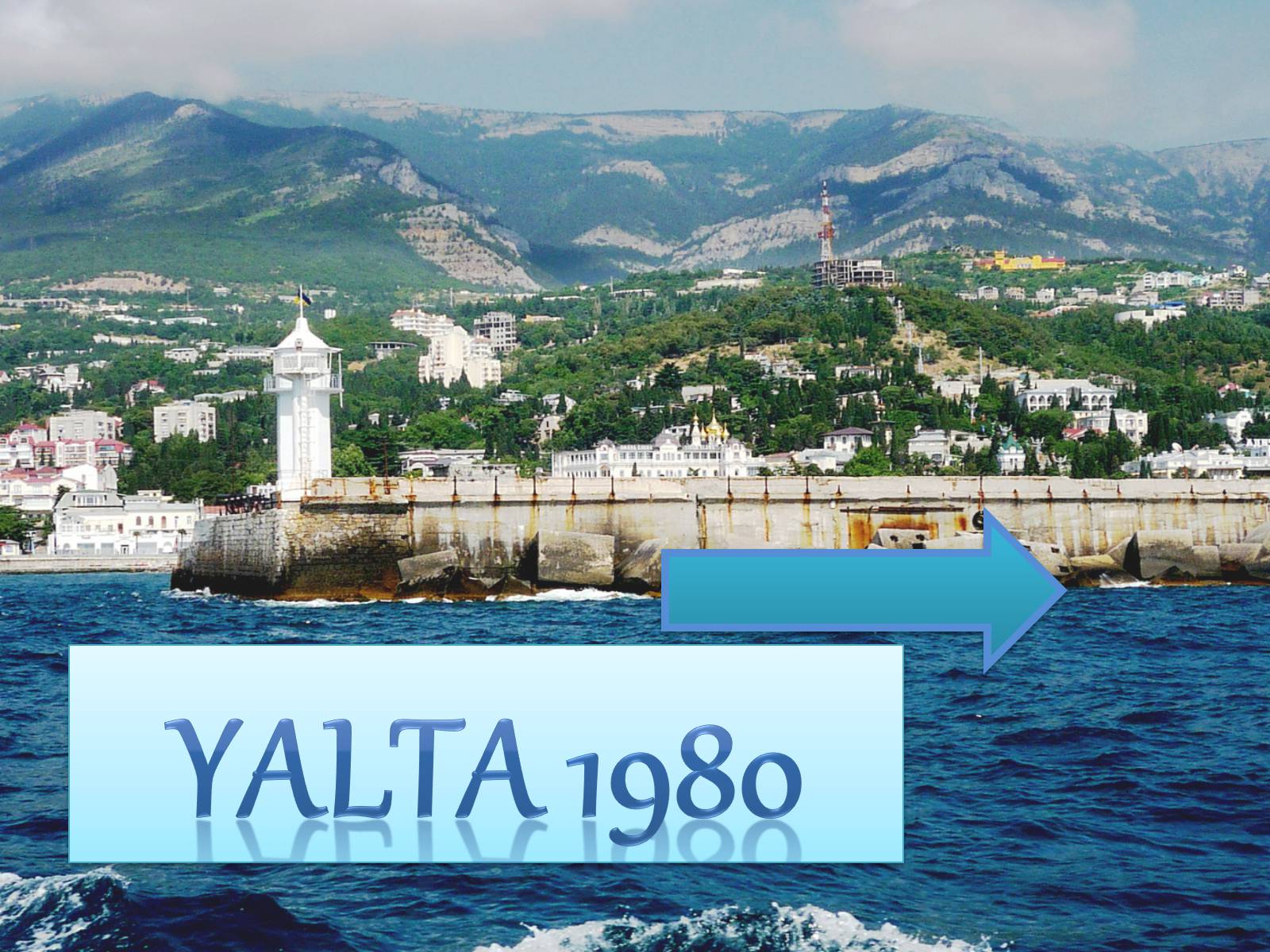
Слайд #8
Yalta 1980
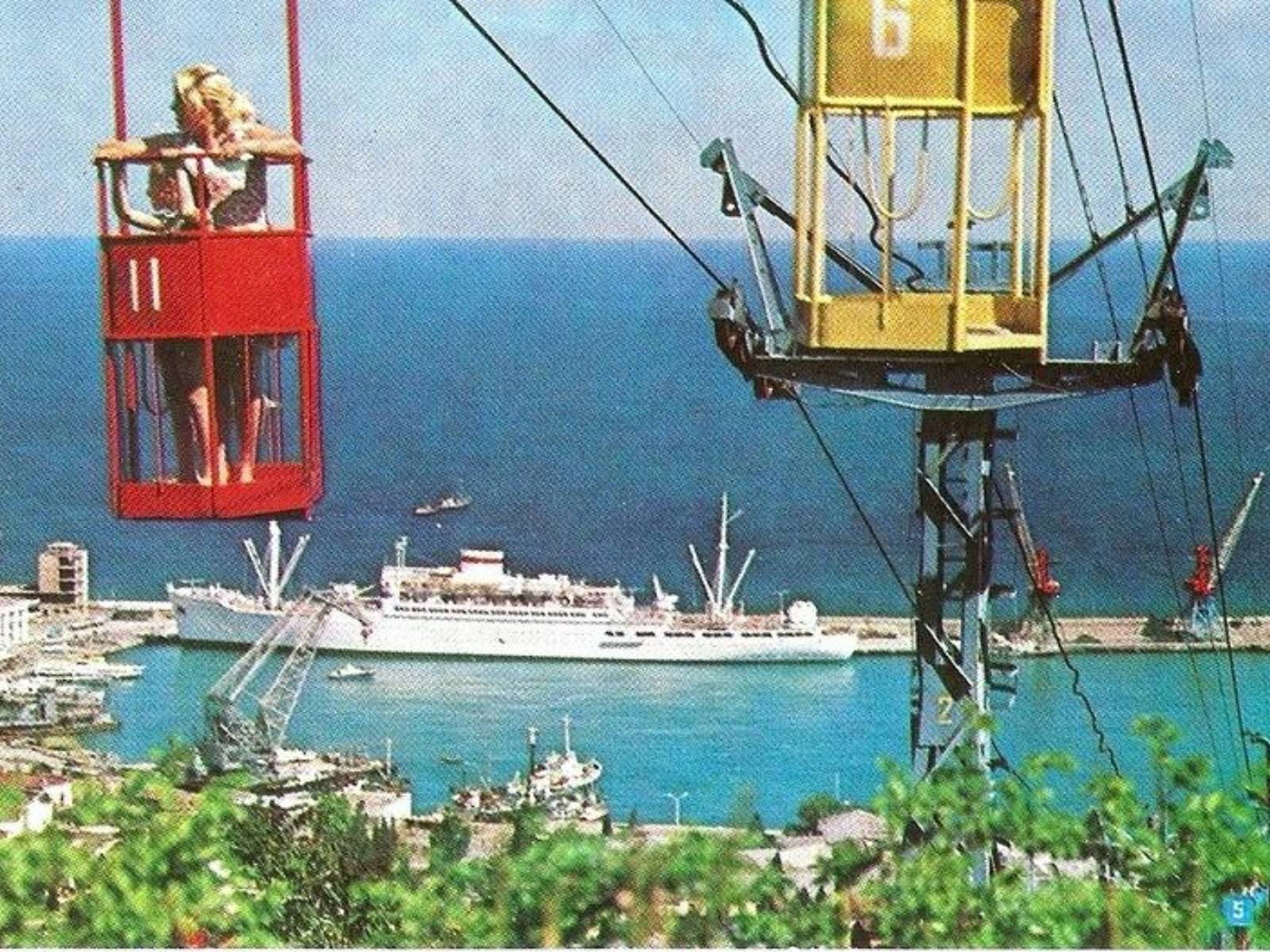
Слайд #9
Yalta port
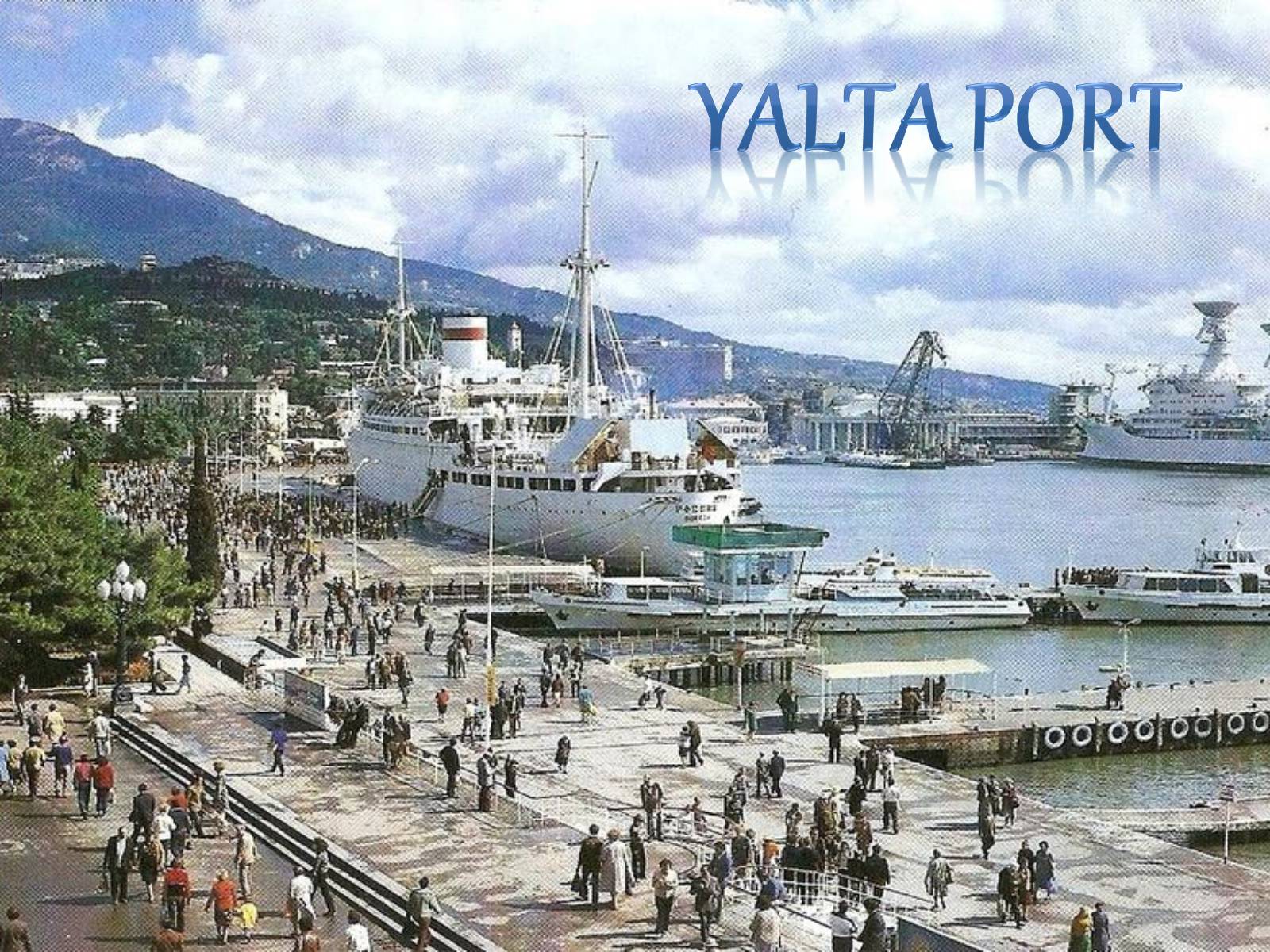
Слайд #10
Yalta port
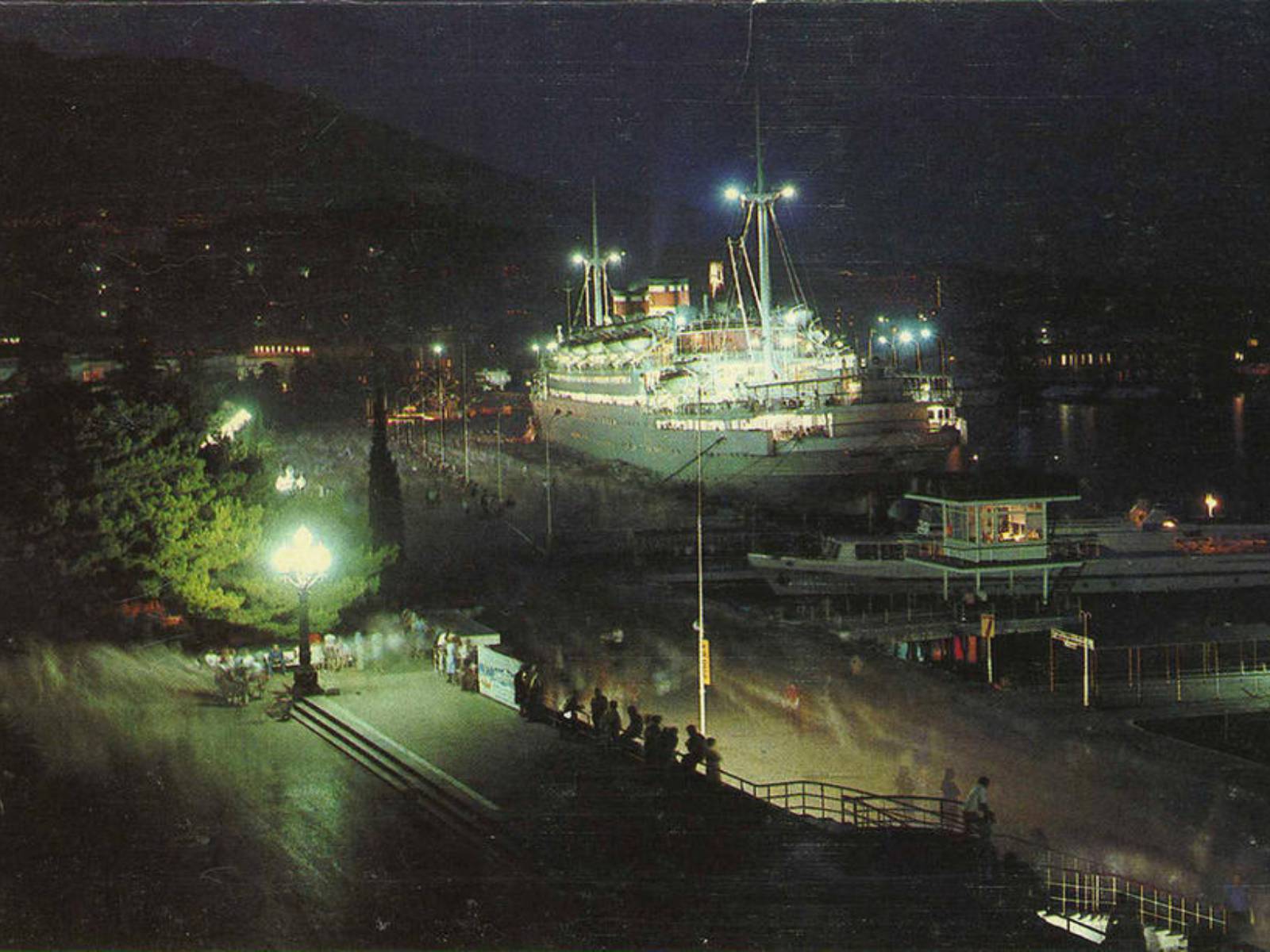
Слайд #11
Frigate "Hispaniola" in 1981
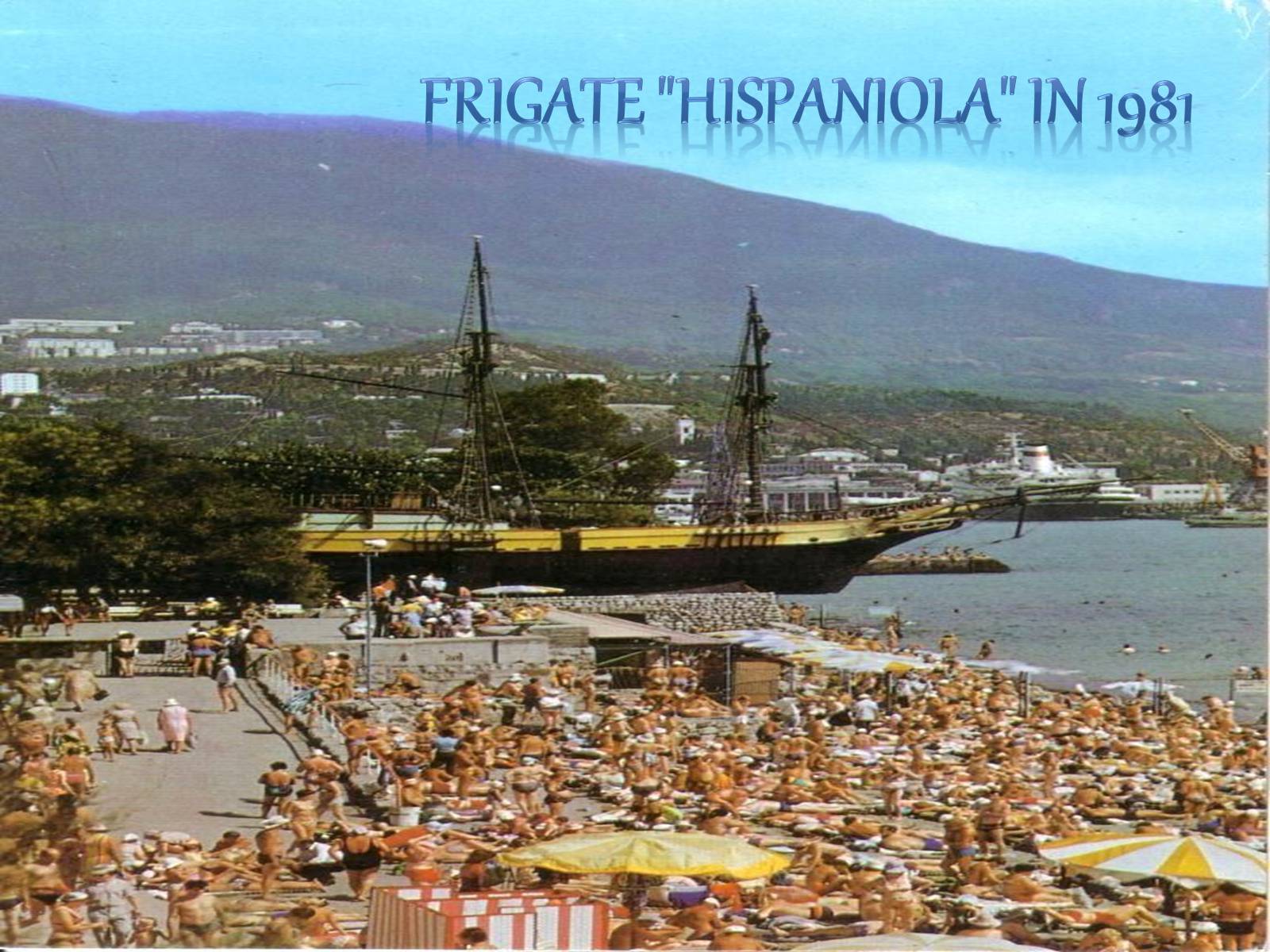
Слайд #12
Hotel "Oreanda"
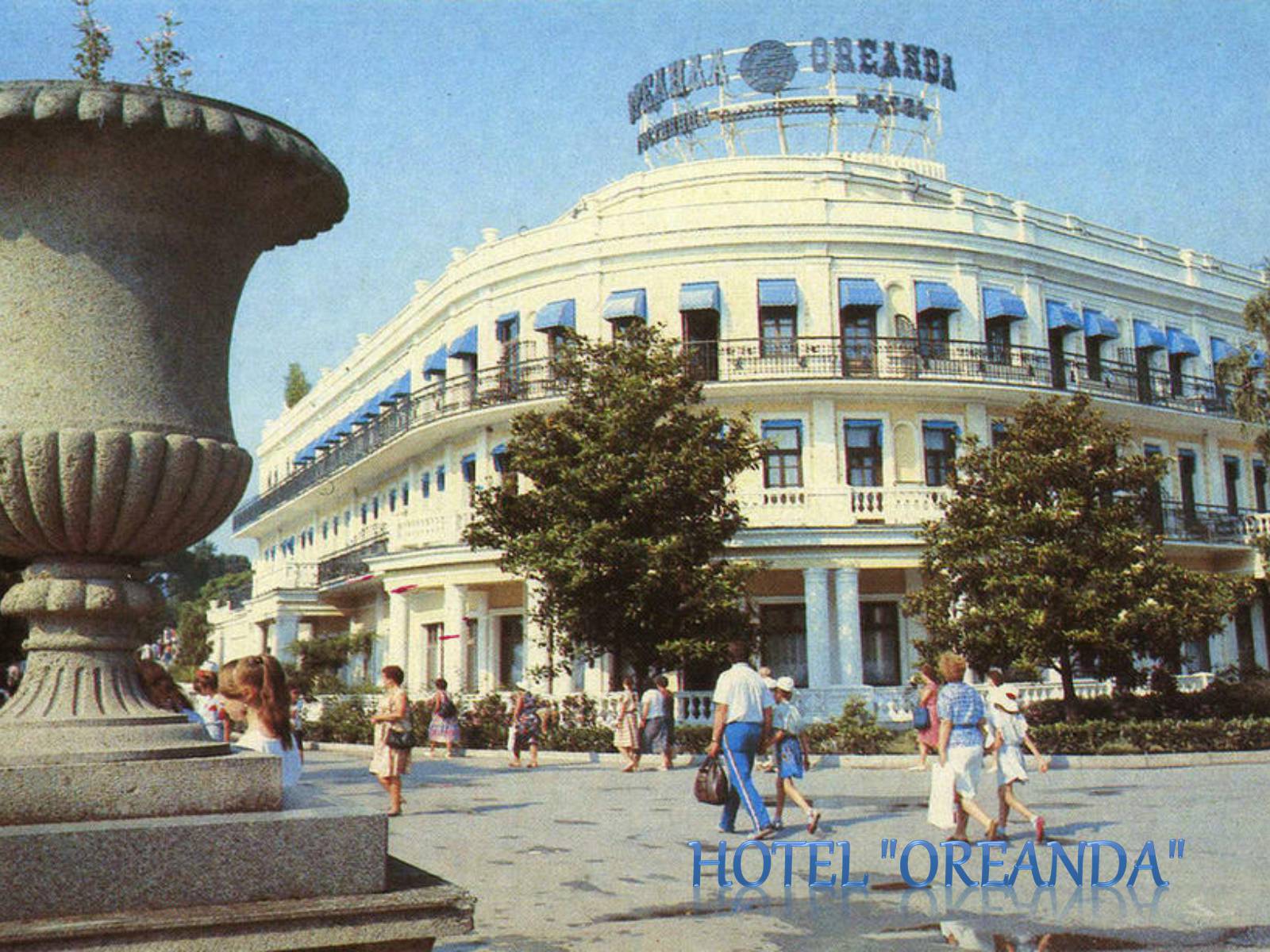
Слайд #13
seafront
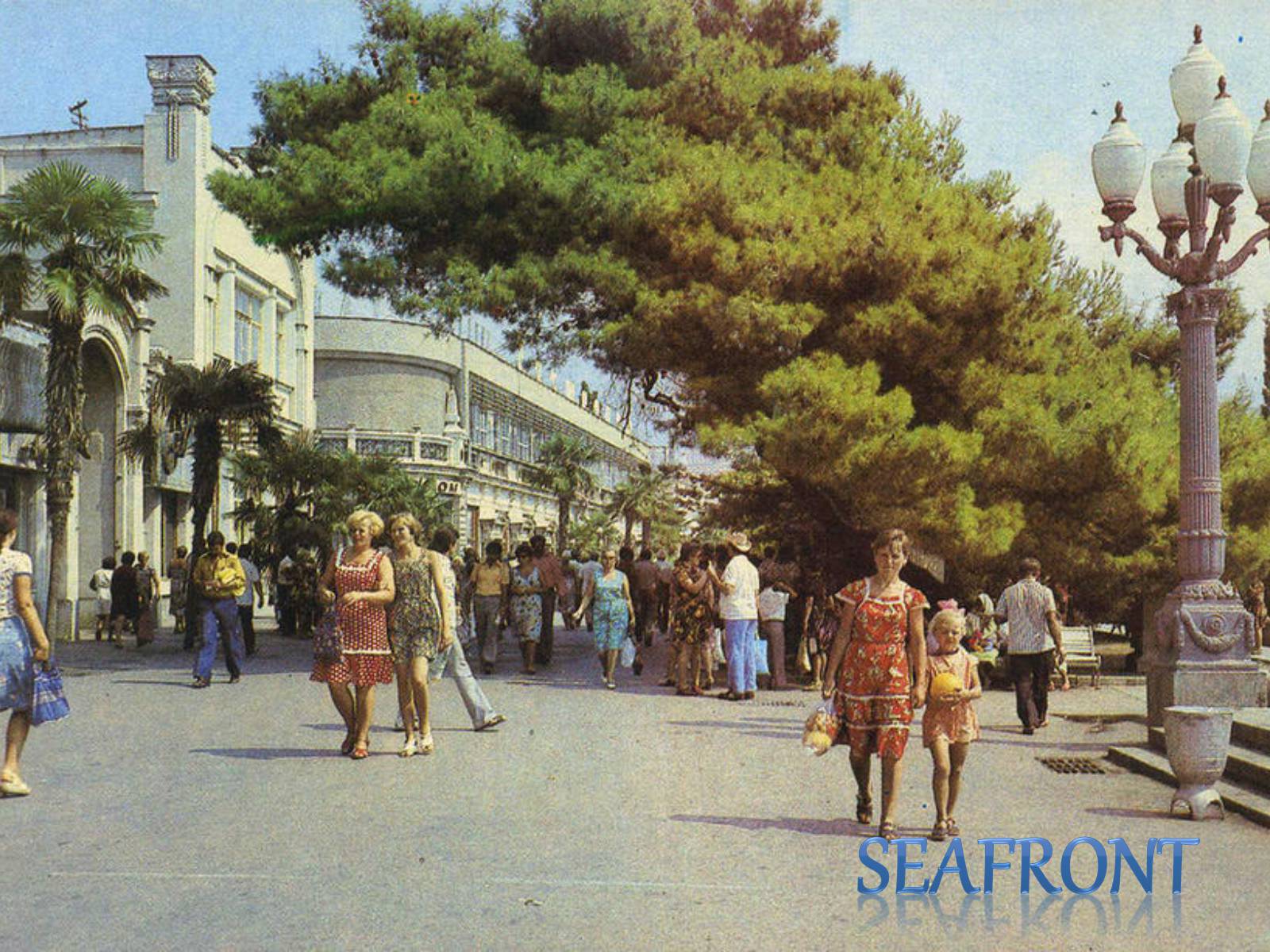
Слайд #14
Soviet area
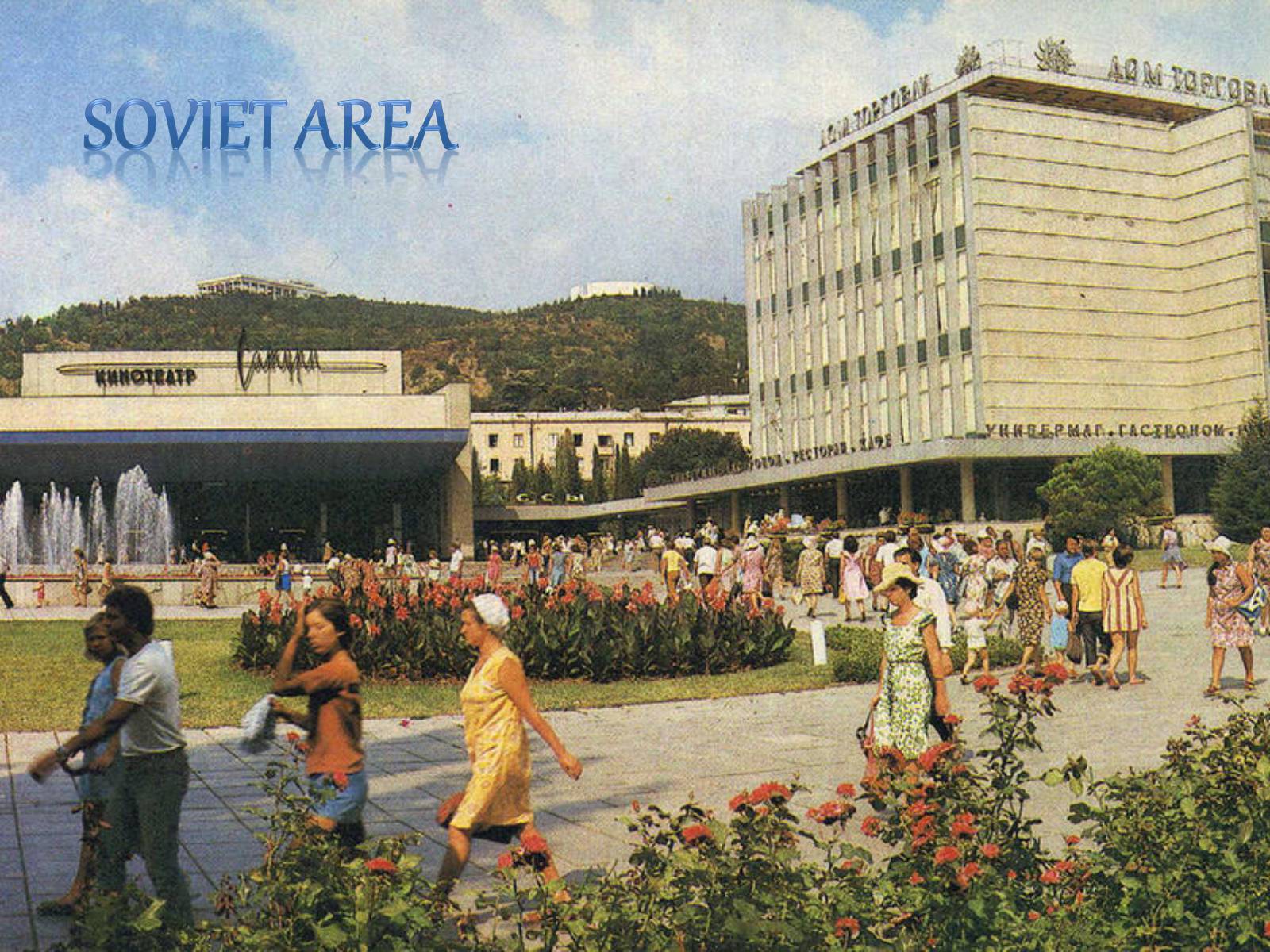
Слайд #15
bus station
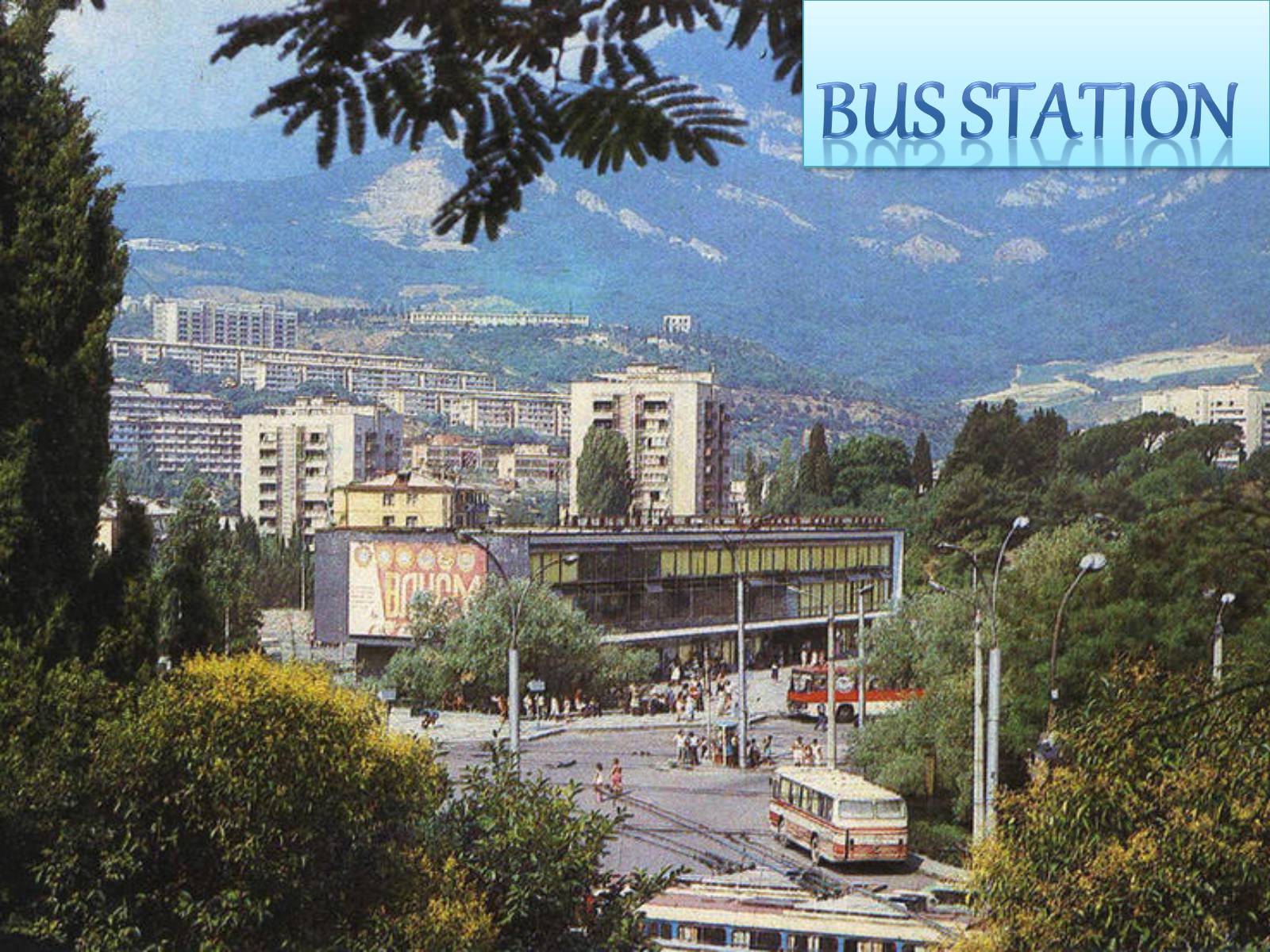
Слайд #16
Memorial in honor of the heroes of the Civil and Great Patriotic War on the Hill of Glory in Yalta
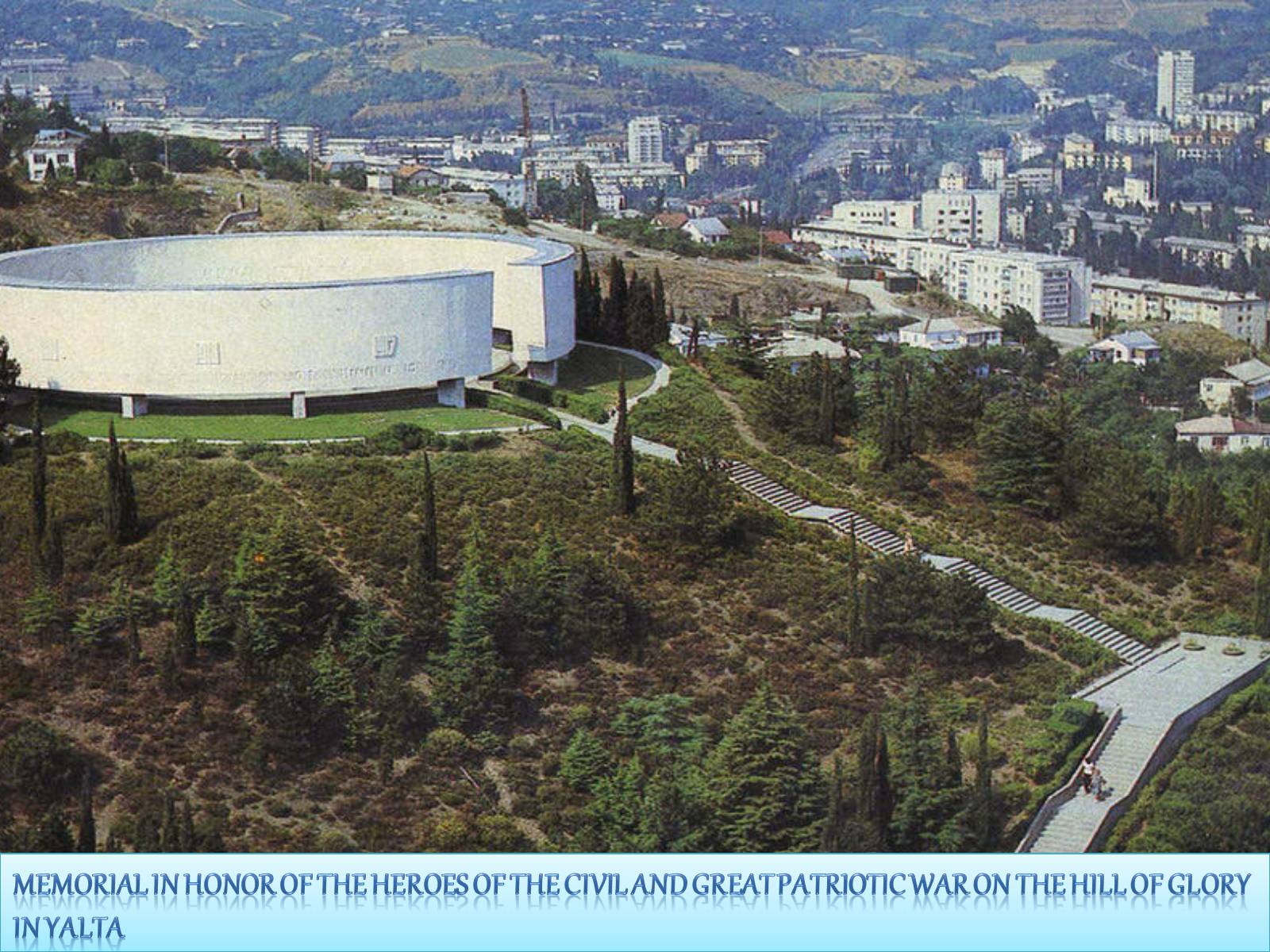
Слайд #17
View on Gursuf and Bear Mountain (Ayu Dag)
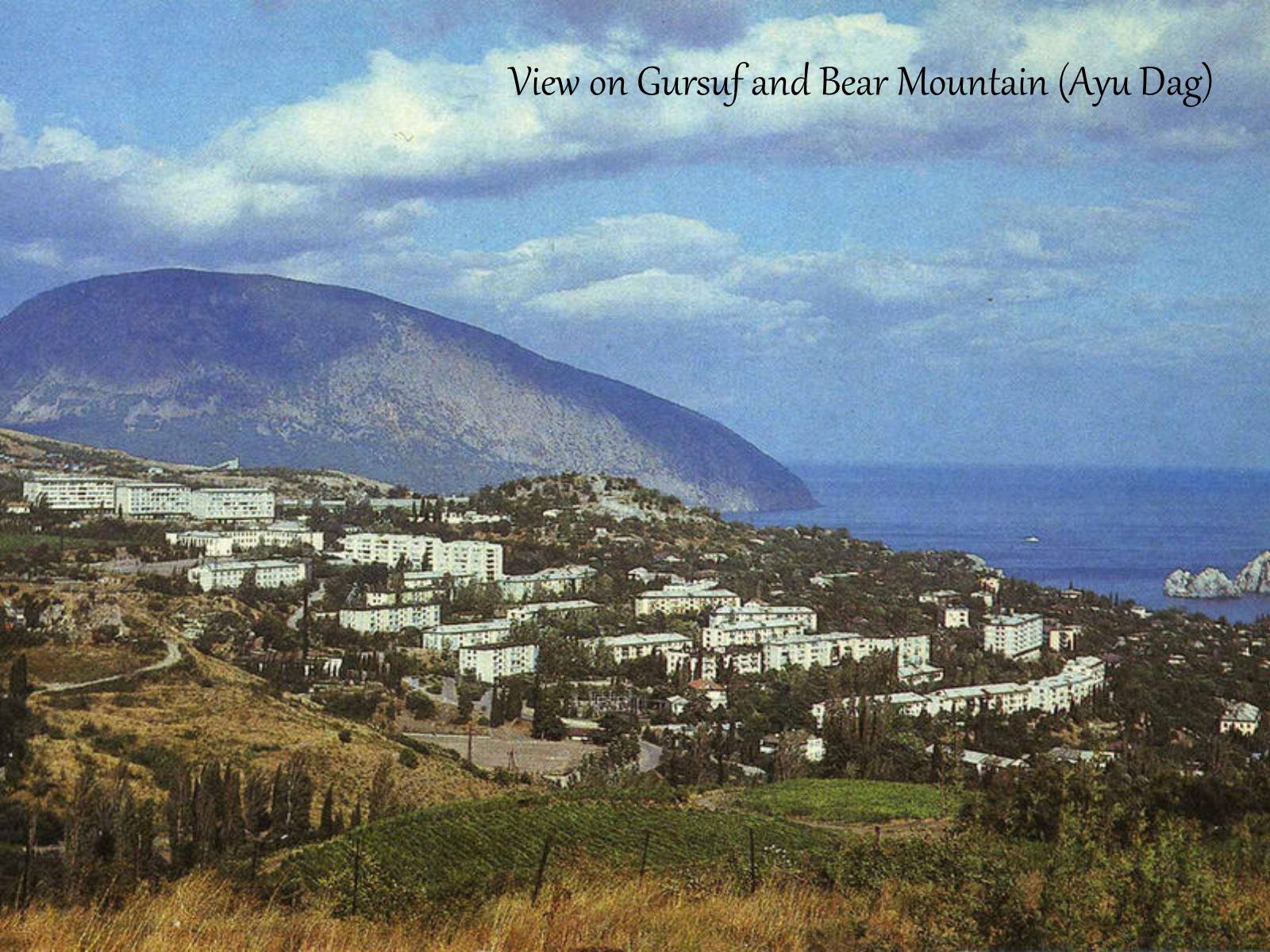
Слайд #18
Fountain "Night" in Gurzuf
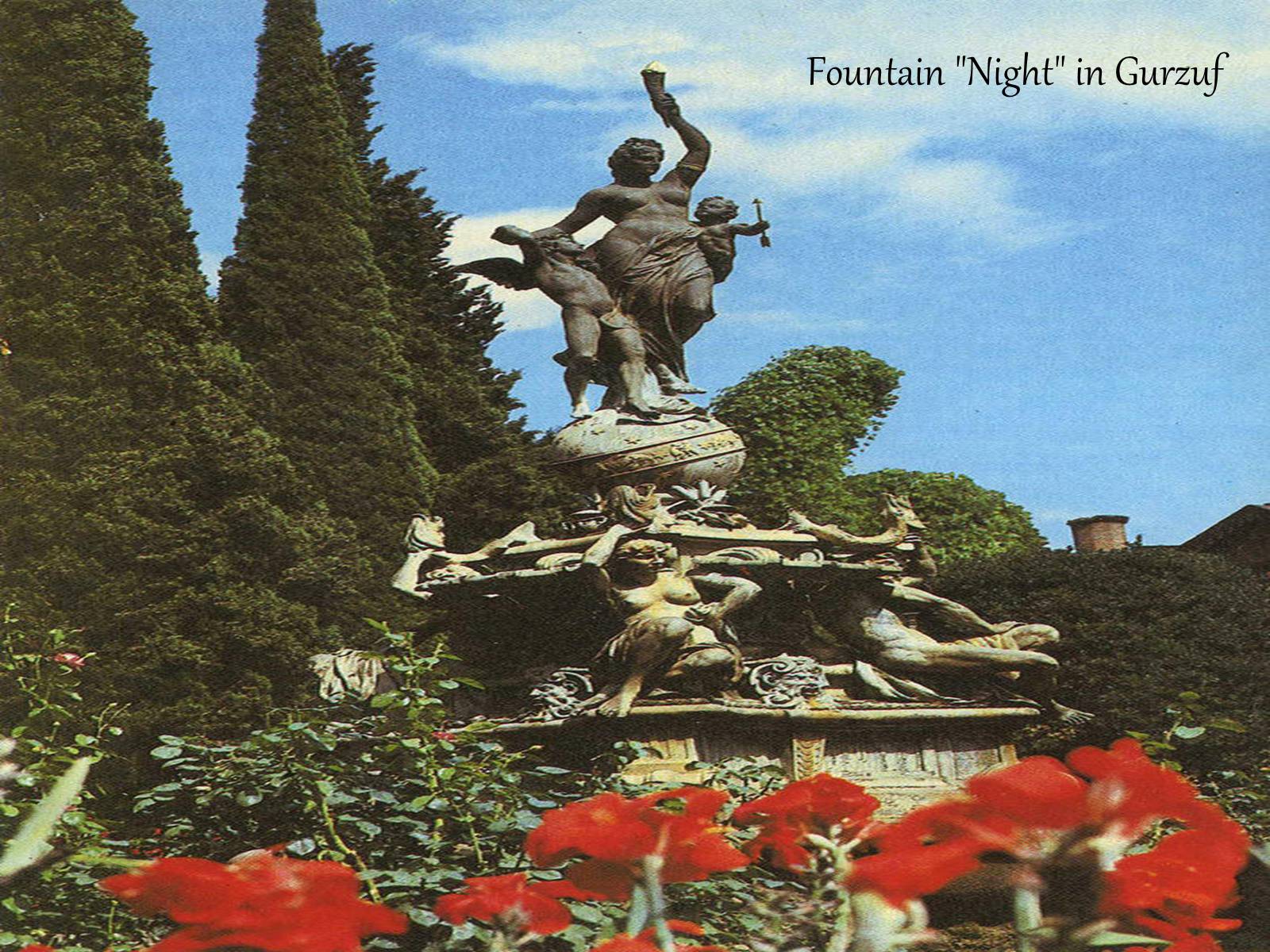
Слайд #19
Chekhov House Gurzuf
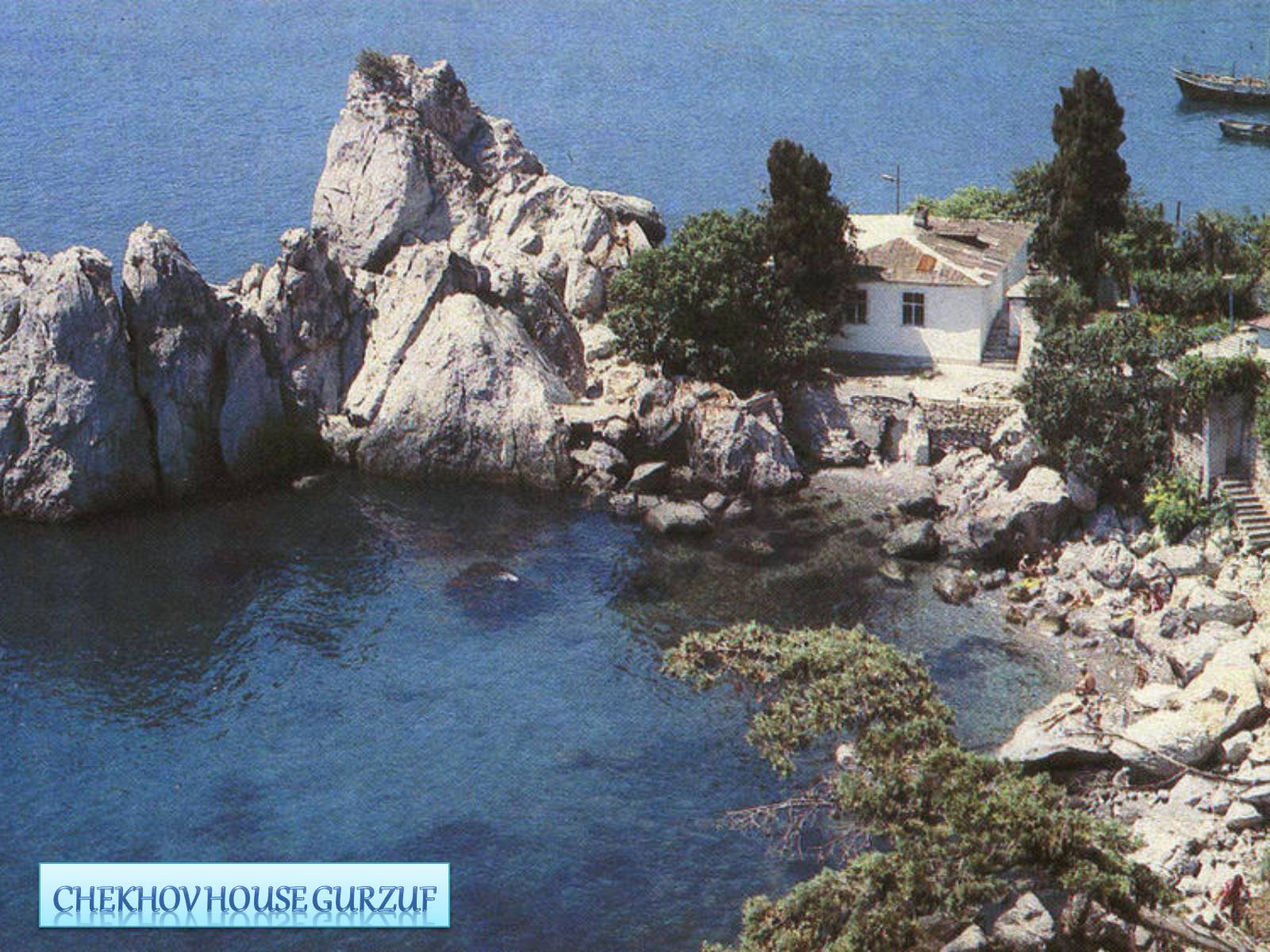
Слайд #20
Union pioneer camp "Artek"
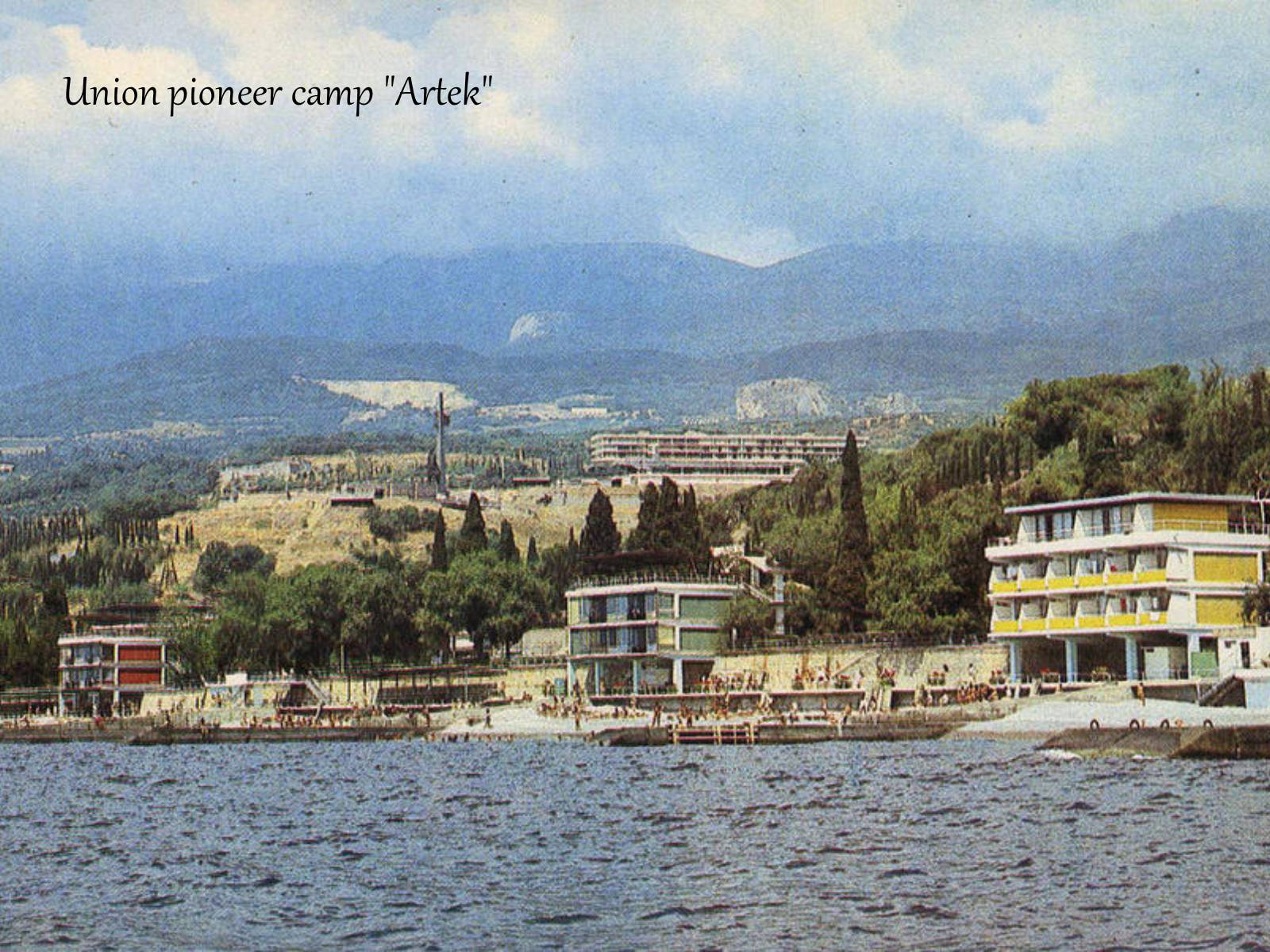
Слайд #21
Union pioneer camp "Artek"
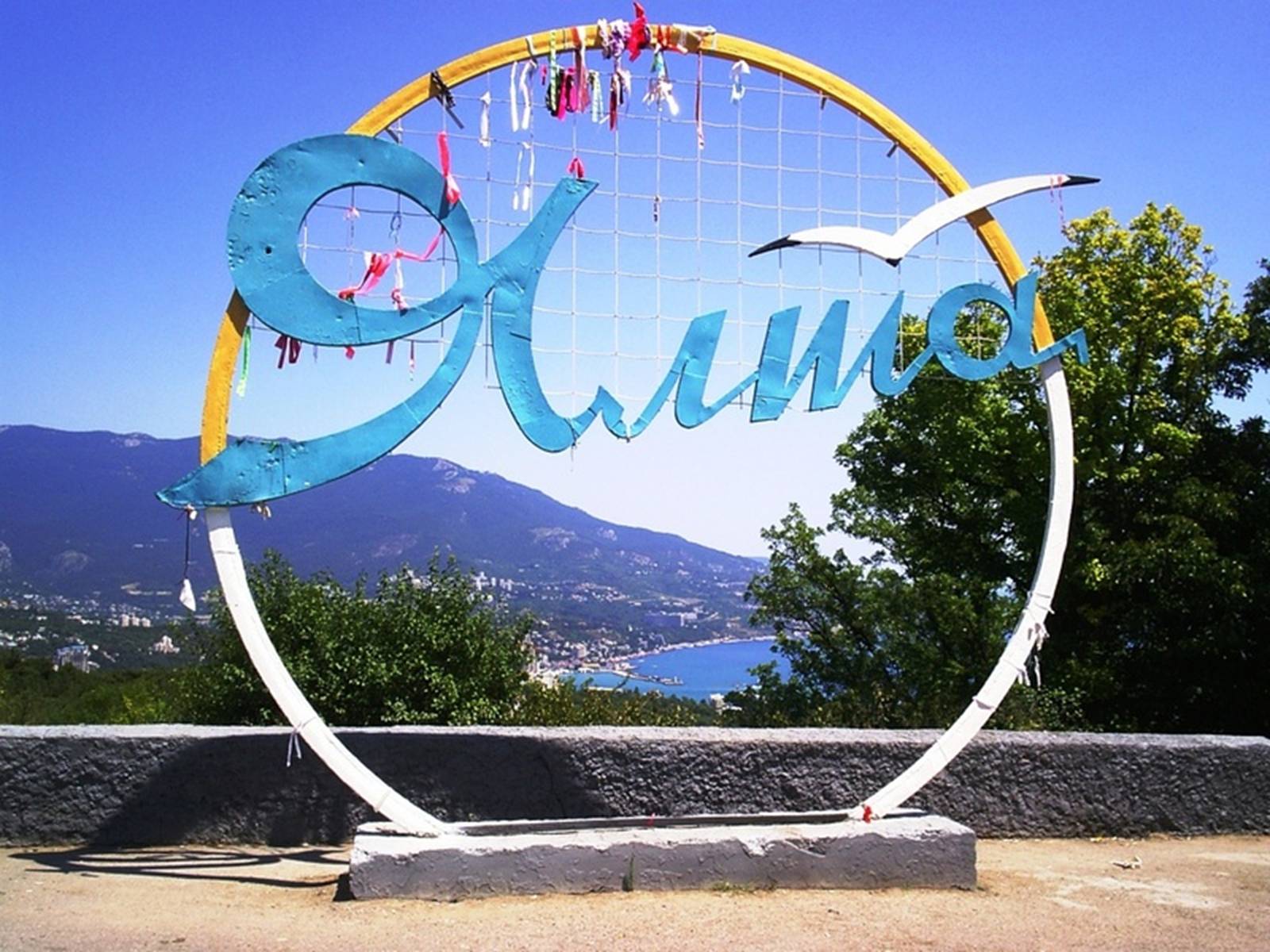
Слайд #22
Union pioneer camp "Artek"
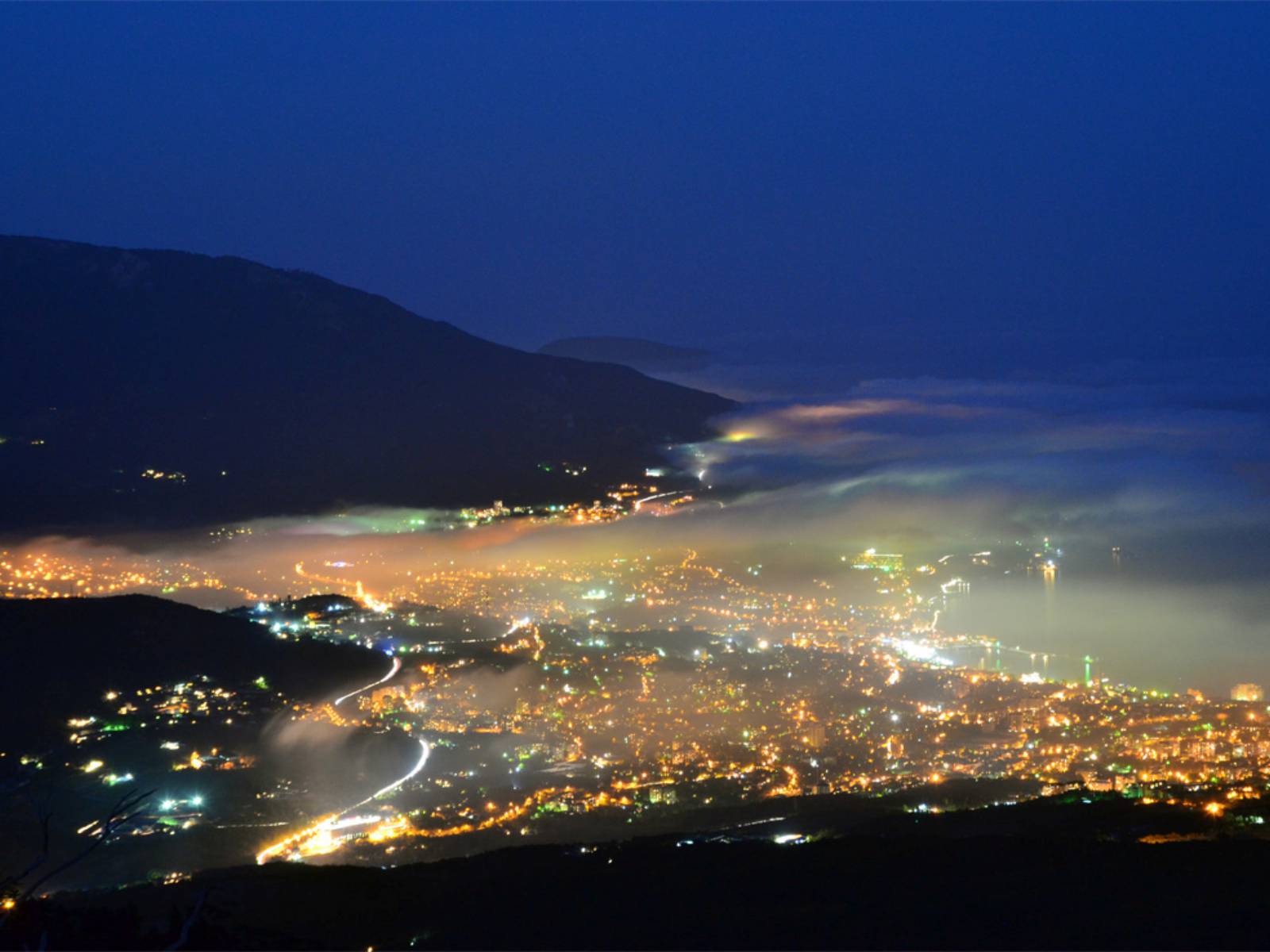
Слайд #23
